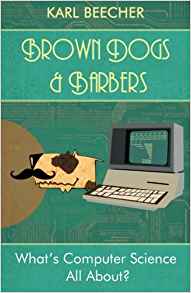I attended a seminar run by the Society of Authors earlier this month. One of the sessions was about the differences between educational publishing in the UK and the USA. One of the points made was that in the UK educational publishers are focused on tests, exams, revision, and more tests, exams and revision. In the USA, by contrast, they are more concerned with, erm, education.
Photo by Workandpix CC0
Perhaps the speaker was exaggerating for effect, but he said that schools in the USA are obliged to ensure that at least 70% of books in classrooms are non-fiction. Also, what he said certainly chimes with my own experience.
This focus on what students are going to be tested on is a real distraction from the business of educating students and, I think, making them want to learn.
When I was a student, I loved reading around the subject. For example, when I was studying Economic and Social History, one of the books I read was Rural Rides, by William Cobbett. It was a waste of time from a purely 'mercenary' point of view: the time I invested was not repaid in terms of an examination question. But it certainly helped me to understand the era better, and to place a lot of the 'exam stuff' in context.
When I was teaching -- when, as now, there was a relentless focus on exam grades -- I did what I could to encourage my students to read magazines and books related to the subject even if the material they covered was not on the syllabus. See, for instance, my article about the stimulating classroom.
If, like me, you think students should make the time and effort to read around the subject, here are three books I should like to recommend to start with.
Brown Dogs and Barbers, by Karl Beecher. Click the title for a my review, or click the book cover to buy it. (Please note: each of the book links is an Amazon Associate link: I earn a small amount of money, but you don't pay any more.)
Dear Data. Again, click the title for a short review. I'll be reviewing it in more detail for my newsletter, Digital Education. Alternatively, click the cover to buy it straight away.
Finally, I recommend The Power of Networks. It's a highly readable exposition of what sounds like a dull-as-ditchwater subject. I'll be reviewing that for my newsletter, and I'm also running a prize draw to win a copy. That's open to subscribers only, so sign up below if you want to be in with a chance. (Competition ends on 29th May 2017 at 11 am BST.)
As always, click the cover to buy the book now.
And to sign up for Digital Education, which is now in its 17th year, please complete the form below.




